Five Books for People Who Really Love Books
These five titles focus on the many connections we can form with what we read.

My dad likes to fish, and he likes to read books about fishing. My mom is a birder; she reads about birds. There are plenty of books on both subjects, I’ve found, when browsing in a gift-giving mood. These presents don’t just prove I’m familiar with their interests. They’re a way to acknowledge that we read about our pastimes to affirm our identity: Fly-fishers are contemplative sorts who reflect on reflections; birders must cultivate stillness and attention. What we choose to read can be a way of saying: I am this kind of soul.
For my part, I like reading more than I like almost anything else. And so, in the manner of my parents, I like to read books about books. Writers who write about writing, readers who write about reading—these are people I instantly recognize as my kind. We’re people who are always in the middle of a chapter, who start conversations by asking, “What are you reading right now?” For us, a meta-book is like coffee brewed with more coffee. It’s extra-strength literature.
If you really love books, or you want to love them more, I have five recommendations. None of these are traditional literary criticism; they’re not dry or academic. They take all kinds of forms (essay, novel, memoir) and focus on the many connections we can form with what we read. Those relationships might be passionate, obsessive, even borderline inappropriate—and this is what makes the books so lovable. Finishing them will make you want to pick up an old favorite or add several more titles to your to-read list.
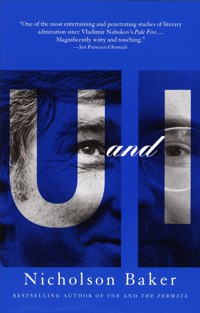
U and I, by Nicholson Baker
I can now say that I’ve been reading Baker for more than 20 years, or more than half my life. But I didn’t know that would happen when I found U and I in a college friend’s car, borrowed it, and never returned it. The subject, not the author, appealed to me then—I loved John Updike. And so did Baker, though love is probably not the right word. This book-length essay is not quite, or not merely, an appreciation of Updike; it’s a hilarious confessional “true story” of Baker’s anxieties, ambitions, competitive jealousy, and feelings of inadequacy in the face of Updike’s abundant body of work. It’s rich too, with wonderful observations on reading and writing in general, as in a passage considering how much more affecting a memoir becomes once the author is deceased: “The living are ‘just’ writing about their own lives; the dead are writing about their irretrievable lives, wow wow wow.”
[A poem by John Updike: 'Half Moon, Small Cloud']
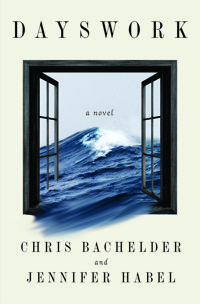
Dayswork, by Chris Bachelder and Jennifer Habel
I almost prefer to keep certain books on my to-read list forever, where they remain full of magical possibility and cannot disappoint me. Moby-Dick is one of them. What if, God forbid, I chance to read it at the wrong time or in the wrong place and it doesn’t change my life? So I turn to Dayswork instead, which feels like cheating—you get some of the experience of reading Moby-Dick without any of the risk. This very novel novel, written collaboratively by a novelist and a poet who happen to be married, is sort of a sneaky biography of Herman Melville, framed by a meta-narrative about a woman writing a book during lockdown. This narrator delivers a parade of delightful facts and quotes and anecdotes, which she’s been collecting on sticky notes. You could think of it also as a biography of Melville’s most famous novel, which has had its own life after his death and touched so many other lives. Dayswork is fragmentary, digressive, and completely absorbing.
[Read: The endless depths of ]Moby-Dick symbolism
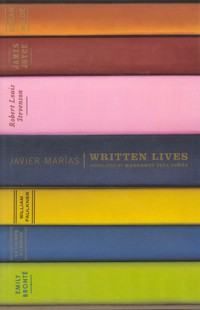
Written Lives, by Javier Marías, translated by Margaret Jull Costa
Marías is one of my favorite novelists, but I only recently encountered this work, a collection of short, dubiously nonfictional biographies in a very specific style. In the prologue, Marías explains that he had edited an anthology of stories by writers so obscure, he was forced to compose their biographical notes using odd, scanty evidence that made it all sound “invented.” It occurred to him that he could do the same thing for authors much more famous (Henry James, Thomas Mann, Djuna Barnes), treating “well-known literary figures as if they were fictional characters, which may well be how all writers, whether famous or obscure, would secretly like to be treated,” he explains. The result is marvelously irreverent, packed with unforgettable details (Rilke, supposedly, loved the letter y and used any excuse to write it) and endearing patterns (Marías would have us believe that many writers loathe Dostoyevsky). Written Lives immediately earned a spot on my shelf of most treasured objects, and every friend I’ve recommended it to has been equally enchanted.
[Read: An introverted writer’s lament]
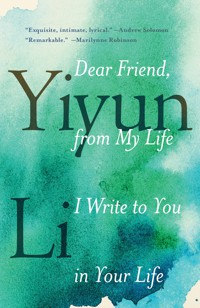
Dear Friend, From My Life I Write to You in Your Life, by Yiyun Li
This sad and incredibly beautiful memoir from a writer best known for her fiction takes its title from a line in a notebook by the New Zealand author Katherine Mansfield. For Li, correspondence, diaries and journals, and literature in general are forms of consolation and companionship that make life worth living even in times of overwhelming despair. The memoir is a record of the reading experiences that saved Li from a dangerous depression. It made me want to dig more deeply into the work of all her favorite writers—Thomas Hardy, Ivan Turgenev, Elizabeth Bowen, William Trevor—because she describes them so warmly and affectionately, as if they were friends. Here, as in her novels, Li is philosophical, with a gift for startling aphorisms: “Harder to endure than fresh pain is pain that has already been endured,” she writes. And “One always knows how best to sabotage one’s own life,” or “What does not make sense is what matters.” Li’s work is so moving and so very wise.
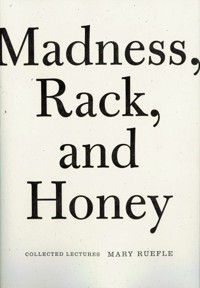
Madness, Rack, and Honey, by Mary Ruefle
The American poet Mary Ruefle is one of those writers people like to call a “national treasure,” which always has to do with something beyond brilliance or talent, an additional spectacular charm that makes you wish you knew them in “real life.” This collection of lectures on poetry and topics adjacent to poetry (sentimentality, theme, the moon) is the perfect introduction to Ruefle’s particular charisma. She’s unabashedly devoted to poets and poems, but you don’t have to love poetry to fall in love with her voice. She’s plainspoken yet mysterious, always asking curious questions, about death and fear and secrets, and then answering herself with surprising authority. Ruefle is inclined toward quirky asides, but all roads lead back to books: “I offer my dinner guest, after dinner, the choice between regular and decaf coffee, when in fact I don’t have any decaf in the house,” she writes. “I am so sincere in my effort to be a good host that I lie; I think this probably happens all the time in poetry.” Ruefle offers a beautiful example of how a life filled with reading opens and alters the mind.










